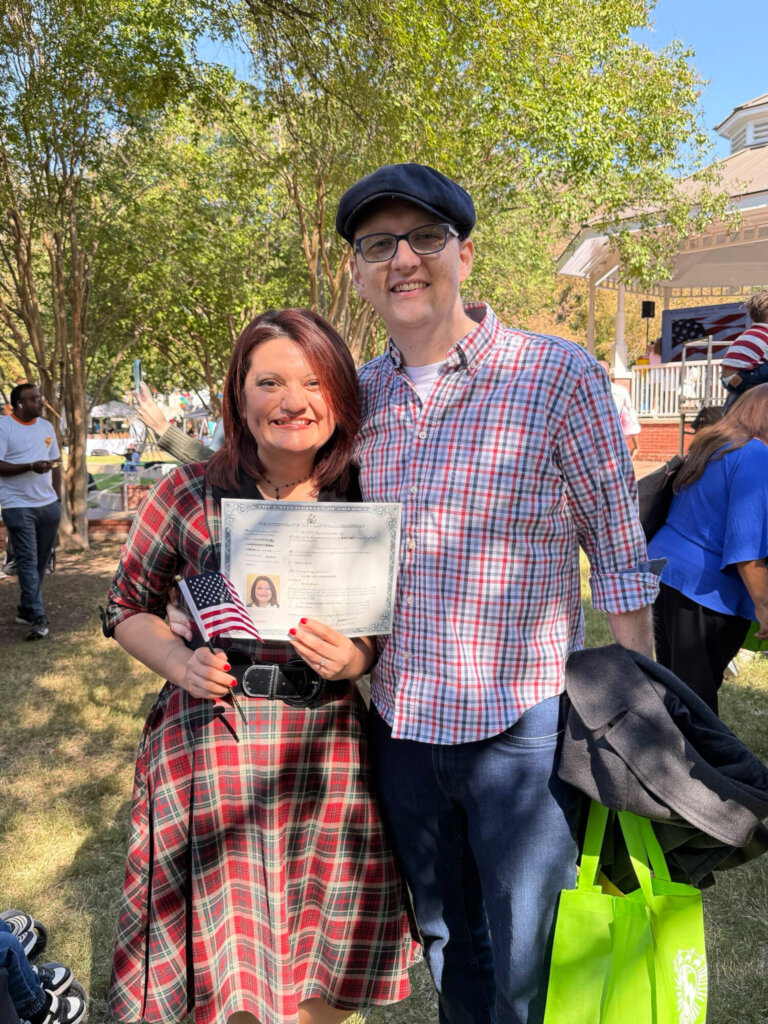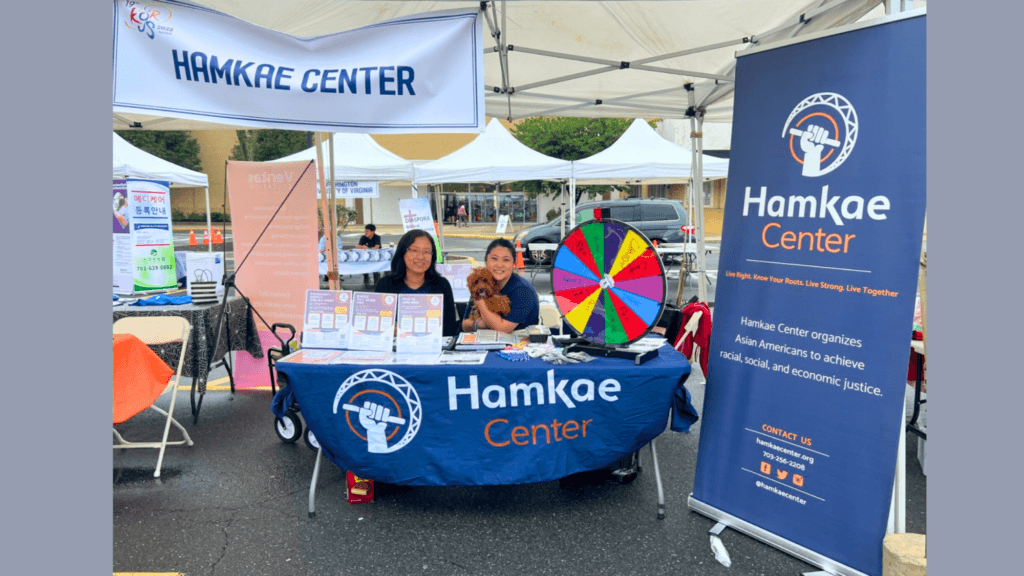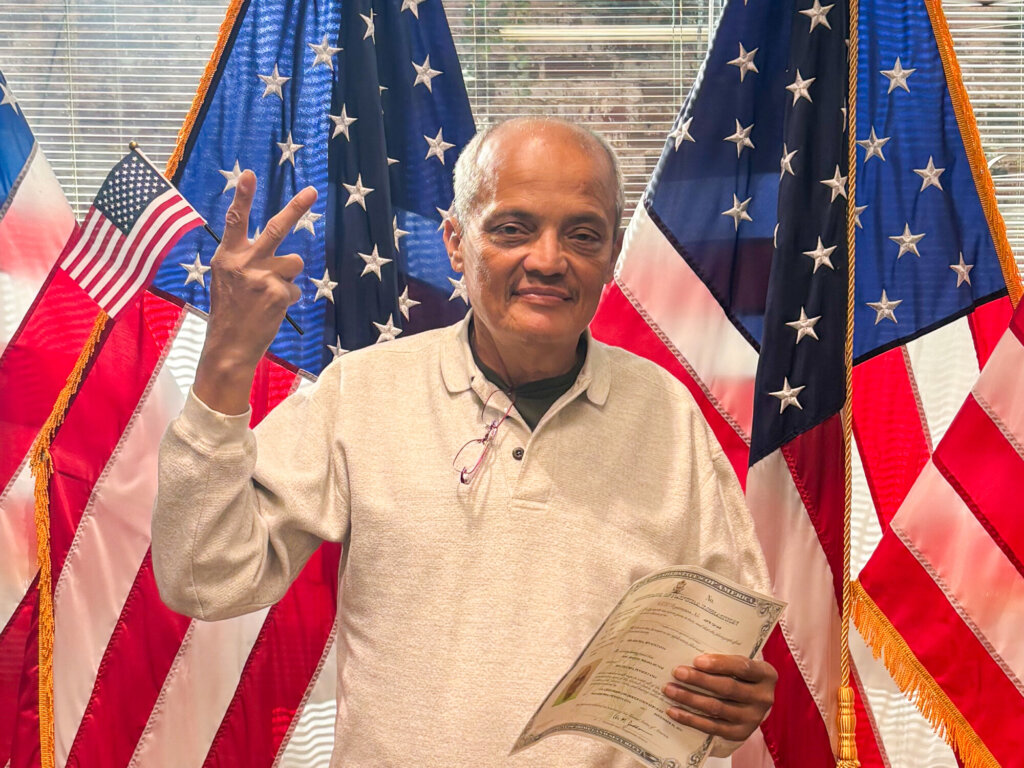Abwe Abedi: “I can help the country as a citizen.”
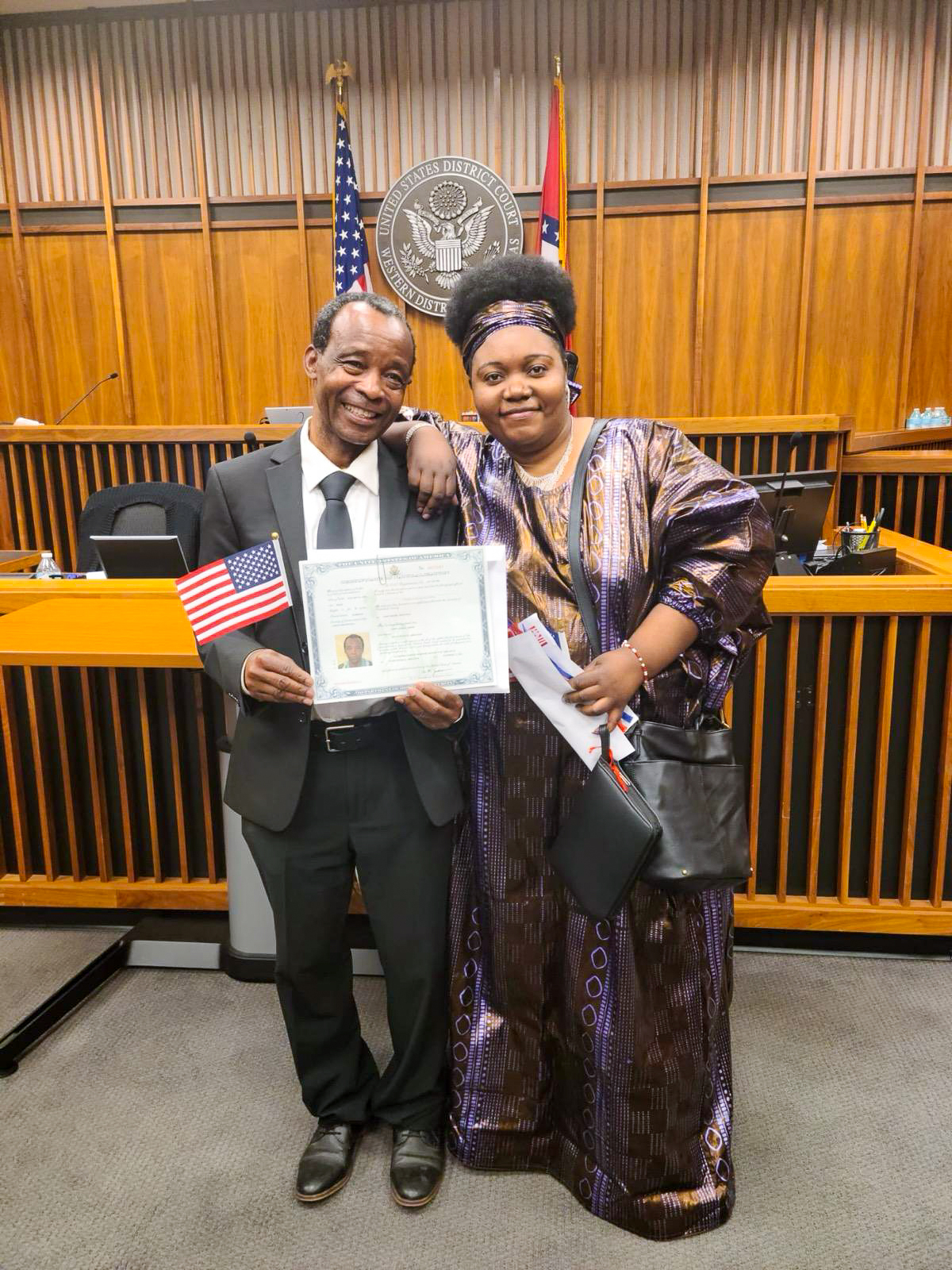 Abwe Abedi at his oath ceremony with his wife, Sikitu Mbuto. (Photo courtesy of Abwe Abedi)
Abwe Abedi at his oath ceremony with his wife, Sikitu Mbuto. (Photo courtesy of Abwe Abedi)Explore More
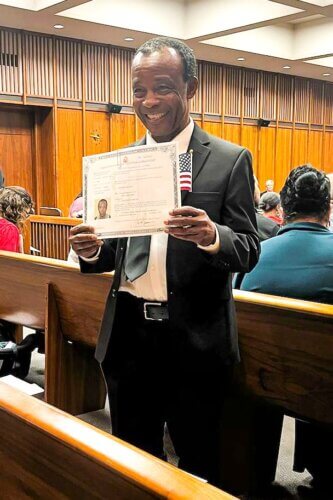
My name is Abwe Abedi and I was born in the Democratic Republic of Congo. We moved to the United States on May 8th, 2018. I have my wife and seven kids here—three boys and four girls. I always say that it was like a resurrection, because if you compare the life in the refugee camp in Africa to life here, it is like you are raised from the dead.
The Democratic Republic of Congo is a country at war since 1994. When we left our country, I went to Kigoma, Tanzania, where we were refugees in the camp for more than 22 years. I had my kids, my cousin, and my mother and father with me. Life was very hard. We had a ration of 560 grams of rice (1.24 lbs) per day for each of us. The kids went to the school, but it was not a quality school. We were in the bush and there were many illnesses like pneumonia and malaria. I had two kids with sickle cell anemia.
In the camp, there was a program to help people having difficulty. My daughter had a sickle cell anemia crisis, and she was transfused every month, maybe two times per month. The resettlement program said that in the camp we don’t have a good facility for her problem. They referred her to a hospital in the USA— Arkansas Children’s Northwest in Springdale, Arkansas. That hospital is now taking care of my two children with sickle cell disease.
When we first arrived in Arkansas, we lived in an apartment that was very small—we were seven people in three rooms and one bathroom. That was very difficult for us. After a year in the apartment, we moved to a house. I am very thankful to Canopy Northwest Arkansas and the Grace Church who co-sponsored us. The community is a good community, a generous community. We were family to them. One week after we arrived in the United States, Canopy sent us to adult education, to the English program. I am still a student there.
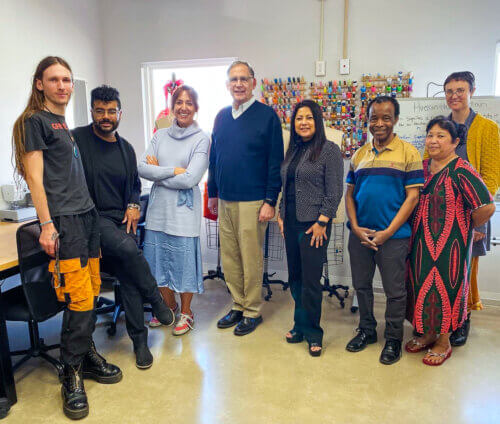
Life was very difficult when the pandemic started. I was working at Chick-fil-A restaurant. I had been working 36 hours and my hours were reduced to 18 hours. It was very hard to have our life. But, one day, because I know how to sew, Khalid Ahmadzai from Canopy (Senior Director of Economic and Community Development) came to my house and asked whether I could help sew some masks. He brought me the material and I started sewing masks. Khalid drove me to the Interform Company (a nonprofit fashion company), and I started to work with them sewing masks eight hours every day. I recovered my hours. I was paid more. For me it was a blessing I can’t forget.
I had learned how to sew, at the young age of 12, because my life was difficult, and I needed to take care of myself. I was helping a tailor, and then I became his apprentice. After two years I started my own business. I had a dream to help to teach people to sew. I thought maybe in the future some of them could get a chance like the one I got. I shared my dream at Interform, and it was accepted by our CEO, Robin Atkinson. We started teaching sewing to immigrants. Now we have immigrants from Congo, from the Marshall Islands, from Brazil.
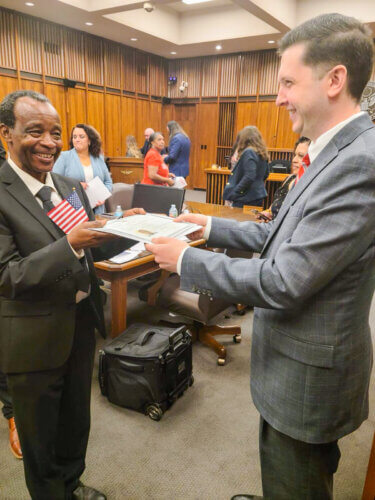
(Photo courtesy of Abwe Abedi)
The English language is hard, it is a big barrier to citizenship. The fee is also expensive but, because of my situation Canopy NWA applied for a waiver for me and I didn’t pay anything. Thank you so much to Lemine M’Bareck who helped me to work on that! Lemine drove me to the center for the test. I was very nervous. He continually advised me to be confident. Not to panic. Not to be nervous. The immigration officer was very kind. He was talking very slowly and everything went well. I answered all the questions, one to six, and I passed. After leaving the office, I was calling people: “I passed! I passed my test! I passed my test!” My supervisor and our boss asked me to come to the office. It was 1 hour and 10 minutes to drive there after the test. They prepared a little party for me, the same day.
I tell other people that to become a citizen is very, very important, but it is very hard. Many people didn’t have basic education like elementary school. That is a very big barrier for them. Becoming a citizen gives me a feeling that I am free— I have all my rights. I can help the country as a citizen. Working in the company, paying taxes, this is the way we are helping the government. I am trying to be an inspiration for other people.

